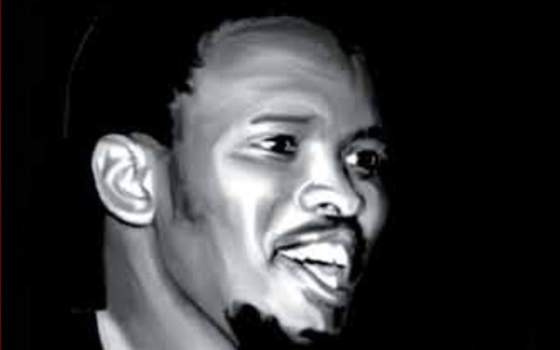- MENU
- HOME
- SEARCH
- WORLD
- MAIN
- AFRICA
- ASIA
- BALKANS
- EUROPE
- LATIN AMERICA
- MIDDLE EAST
- United Kingdom
- United States
- Argentina
- Australia
- Austria
- Benelux
- Brazil
- Canada
- China
- France
- Germany
- Greece
- Hungary
- India
- Indonesia
- Ireland
- Israel
- Italy
- Japan
- Korea
- Mexico
- New Zealand
- Pakistan
- Philippines
- Poland
- Russia
- South Africa
- Spain
- Taiwan
- Turkey
- USA
- BUSINESS
- WEALTH
- STOCKS
- TECH
- HEALTH
- LIFESTYLE
- ENTERTAINMENT
- SPORTS
- RSS
- iHaveNet.com: Book Reviews

Book Review: Steve Biko: Father of Black Consciousness
by Benjamin Pogrund
Biko: A Life
by Xolela Mangcu
Steve Bantu Biko was only 31 when South African Security policemen killed him on September 12, 1977. He was naked and manacled and it seems his head was smashed against a wall during interrogation. The government's callous response, with a minister saying 'it leaves me cold', caused worldwide shock and condemnation of apartheid rule.
Yet Biko's significance stretches far beyond his short life and the brutality of his death. He was, and is, hailed for his role in developing Black Consciousness, in asserting the need for black South Africans to lead in fighting for their freedom.
This took the particular form of rejecting white liberals as partners in the struggle. As Biko put it: 'Can our white trustees put themselves in our place? No, they cannot.' Yet Biko was not anti-white, either in his politics or in seeking help for his work or in his friendships.
His achievements are all the more remarkable because, during the last four years of his life, government edict confined him to King William's Town and its 1,000-house Ginsberg Location for peoples in the Eastern Cape. He was barred from political activity and could not be with more than one person at a time.
Although hobbled, he did not stop. He put his energies into developing Black community programmes, including a clinic and a creche. But his increasing political work led to his death: he was arrested at a police road block while returning from a visit to Cape Town hundreds of miles away.
Dr Mangcu's book is billed as the first in-depth look at Biko's life and he came to it well-prepared: he is a well-known commentator who lived in Ginsberg; he was 11 years old when Biko died and reveres him.
He places Biko within a 'long trajectory' of black resistance to European conquest, going back to the Khoikhoi and San in the 17th and 18th centuries and up to the Xhosa wars against settlers in the 19th century. Yet he rejects the notion of Biko invested with a Xhosa ethnic identity; instead, he sees him 'as much a product of South Africa's multi-ethnic political heritage as he was a child of the Xhosa people.'
Biko's mother, Alice, known as MamCethe, was a rock in his life. Strong in her Christian faith, she was widowed when he was four; working as a hospital cook she raised her four children plus sundry grandchildren, nephews and nieces. Biko debated Christianity with the radical Anglican priest,
In Biko's boyhood, the
His years as a student provided the incubator for fi rming up his ideas, and especially through confl icts with the white liberals who led the
Mangcu describes these events in detail and discusses Biko in the context of international thinking about Black Consciousness. But he has little to say about the rise of Black Nationalism in South Africa. This was surely the bedrock for Biko's thinking, yet Mangcu does not pursue it.
The new nationalism came to life in the
Nor is Mangcu always strong on facts. For example, the Africanists did not break from the ANC in 1959, as he says, but in 1958. They did not object to the influence of white liberals inside the ANC, as he says, but to white and Asian communists; there was no liberal infl uence on the ANC at the time. The government did not ban Robert Sobukwe, a founder of the
There is still much to explore in
'
Available at Amazon.com:
Article: Copyright ©, Tribune Content Agency.
Book Review: Steve Biko: Father of Black Consciousness
